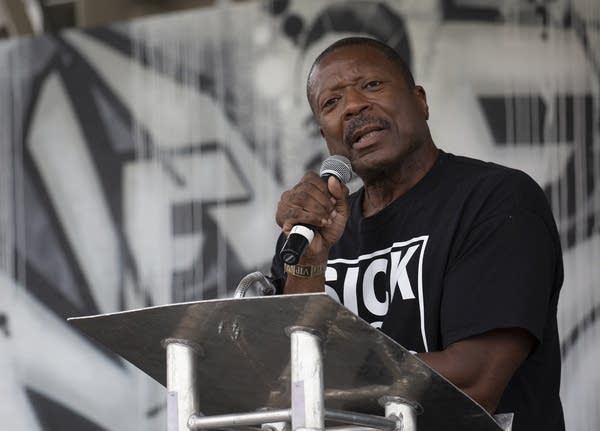Gary Hines and Sounds of Blackness stay on mission for more than 50 years
Hines says the group has embraced its calling to be more than just a band

Music producer Gary Hines delivers a keynote speech Jun 19, 2020 during the Juneteenth celebration held in the Lake Street parking lot located across from the 3rd Precinct in Minneapolis.
Christine T. Nguyen | MPR News 2020
Go Deeper.
Create an account or log in to save stories.
Like this?
Thanks for liking this story! We have added it to a list of your favorite stories.


